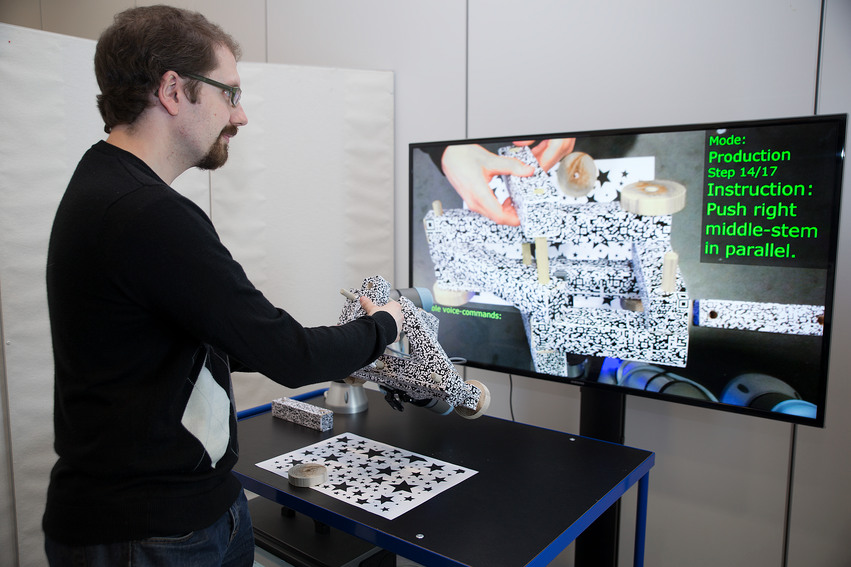Augmented reality (AR) is a technology that is starting to reach maturity, with AR smart glasses (ARSG) showing great potential for seamless integration. With this we are facing a paradigm shift with early adapters starting to integrate ARSG into production but with a majority not still taking the step. This project aims to enable more and faster integration of ARSG into production. The method used is to develop a tool for assessing compatibility for specific production lines to guide in the first steps of integrating ARSG as an operator support tool in assembly.
 Increased demands for customization is making mass production and automation hard, meaning that operators will continue to be an integral part of assembly. But the increased demands for customization and global competition means a higher demand for operators to handle faster and broader product cycles, thereby increasing the needs to handle information processing. Augmented reality has been proven to have the potential of increasing efficiency by being able to present information interactively, individually, and in the correct spatial context. Of the different forms of AR mediums, smart glasses are the most suitable for operators by being hands-free, portable, and able to present on an individual level. The market of augmented reality smart glasses (ARSG) has seen a dramatic increase in number of sold units and technical capabilities and early adapters within industry has already started to use them with value-adding results. But the majority of manufacturing companies and possible use cases do not yet use ARSG. This research project aims to increase the use of ARSG as a support tool for operators by providing guidance in how to assess compatibility of a production line with ARSG and how to initiate the process of integrating ARSG into a maintainable production support tool.
Increased demands for customization is making mass production and automation hard, meaning that operators will continue to be an integral part of assembly. But the increased demands for customization and global competition means a higher demand for operators to handle faster and broader product cycles, thereby increasing the needs to handle information processing. Augmented reality has been proven to have the potential of increasing efficiency by being able to present information interactively, individually, and in the correct spatial context. Of the different forms of AR mediums, smart glasses are the most suitable for operators by being hands-free, portable, and able to present on an individual level. The market of augmented reality smart glasses (ARSG) has seen a dramatic increase in number of sold units and technical capabilities and early adapters within industry has already started to use them with value-adding results. But the majority of manufacturing companies and possible use cases do not yet use ARSG. This research project aims to increase the use of ARSG as a support tool for operators by providing guidance in how to assess compatibility of a production line with ARSG and how to initiate the process of integrating ARSG into a maintainable production support tool.

